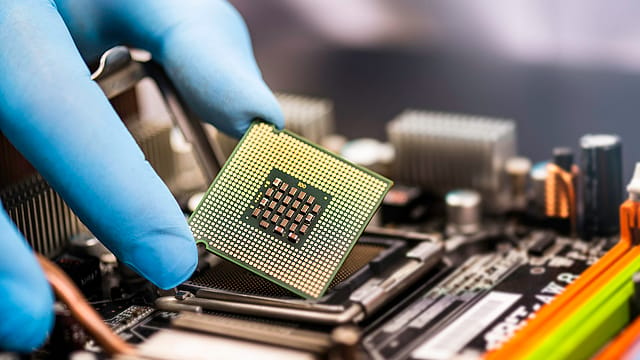TCS introduces chiplet-based system engineering services to accelerate advanced chip-design in country
ADVERTISEMENT

IT services Tata Consultancy Services (TCS) has ventured into Chiplet-based System Engineering Services, in a bid to provide semiconductor companies assistance to go beyond conventional chip design.
This new set of services that the tech major will offer will enable semiconductor companies in designing faster and more powerful next-generation chips. This is aimed at positioning India as an integral player the global supply chain of these ‘digital diamonds,’ as PM Modi had called semiconductors so in his speech at SEMICON India 2025, earlier this month.
Chiplets are small integrated circuits that serve as building blocks of larger chips. Using these in system engineering will allow companies to ‘deliver faster, efficient, and more powerful processors,’ the company revealed in its exchange filing.
“TCS’ new services are expected to strengthen this momentum by giving both Indian and international companies access to worldclass expertise in chip-to-system engineering,” the company said in its statement.
This comes at a time when India is experiencing a major shift in the semiconductor industry. The country’s semiconductor market was valued at $45–50 billion in the last fiscal year, and is projected to double by 2030, reaching the $100–110 billion milestone.
“Semiconductors are the foundational technology driving digital innovation and powering differentiated experiences. TCS Chiplet-based System Engineering services will help semiconductor enterprises accelerate chiplets tapeout driving flexibility, scalability and faster time to market. Our extensive investments in next-gen technologies, contextual knowledge of the semiconductor industry, and strong track record in execution make us the preferred partner to drive innovation at scale,” said V Rajanna, President, Technology, Software and Services, TCS, in a statement.
The company is among the first tech companies of the country to have introduced these Chiplet-based System Engineering Services. Under this, it will offer end-to-end design and verification for industry standards like UCIe™ (Universal Chiplet Interconnect Express) and HBM (High Bandwidth Memory).
The company stated that it will extend expertise to companies in advanced package designing, including 2.5D and 3D interposers and multi-layer organic substrates that power multi-chip integration.
Simply put, this will allow companies to become more prepared for advanced chip designing by more efficient and faster chip building.
Overall, the semiconductor industry is increasingly turning to chiplet-based designing by integrating smaller, modular chips, to overcome scaling limits. This leads to a reduction of costs and acceleration product launches.
The government recently announced that the Centre is in process of launching the second phase of India Semiconductor Mission (ISM). The first phase saw an outlay of ₹76,000 crore, with over 10 semiconductor projects approved under it. The country is home to 20% of the world’s chip design engineers.